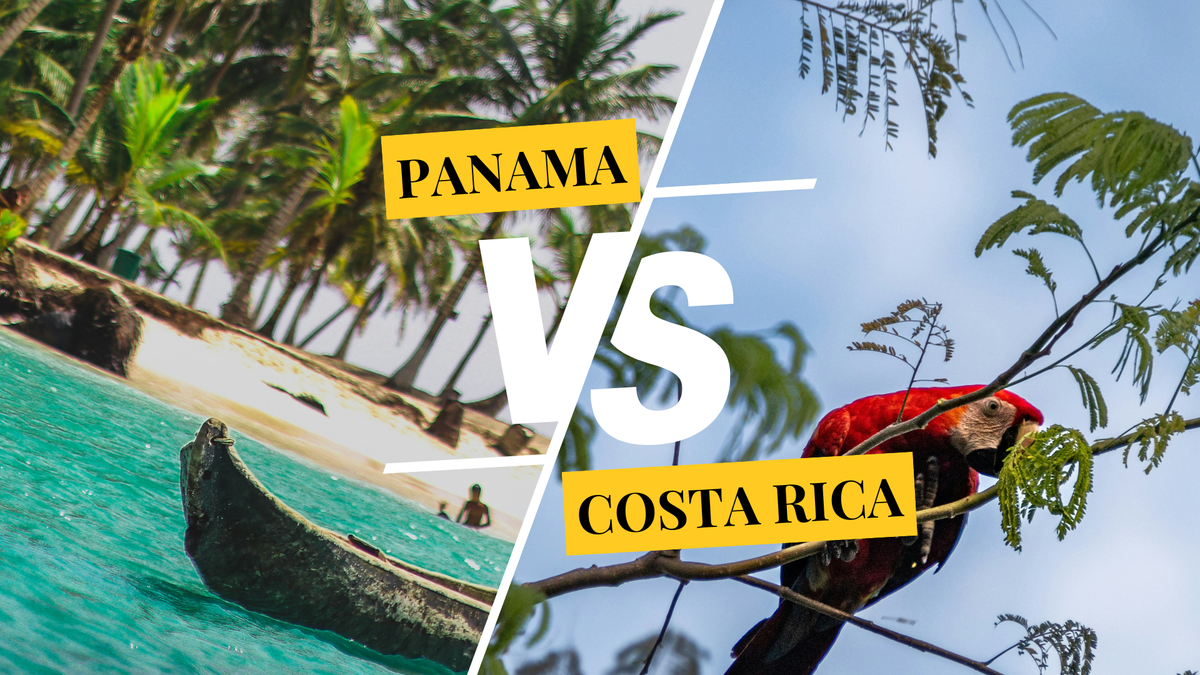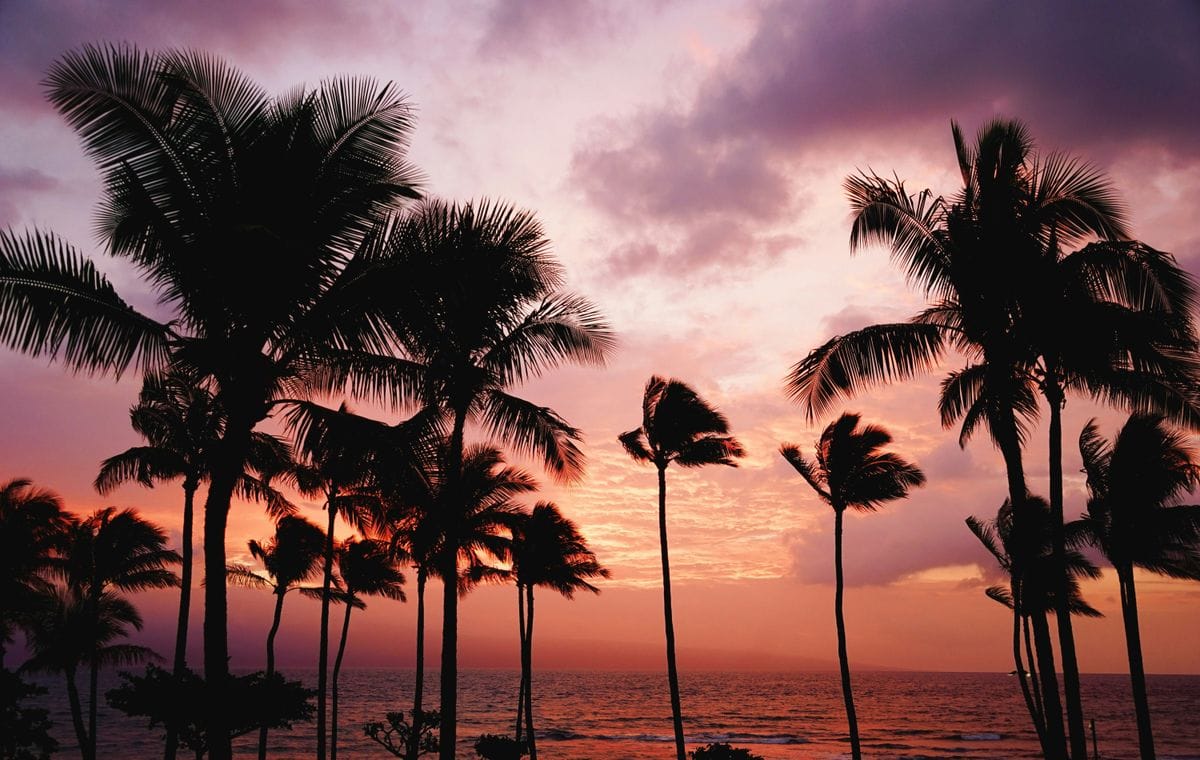Traveling to Central America offers a rich tapestry of experiences, with Panama and Belize representing two of the region's most captivating destinations. Each country boasts its own unique blend of natural beauty, cultural heritage, and adventure opportunities, making them top choices for travelers.
However, despite their geographical proximity, Panama and Belize offer distinctly different experiences to visitors. This article dives into the geographical, cultural, historical, and practical differences between the two, providing a comprehensive comparison for travelers looking to explore these vibrant nations.


Key Takeaways
- Panama and Belize are distinguished by their unique geographical features and climate, with Panama offering a more varied landscape and Belize boasting the world's second-largest barrier reef.
- Both countries have rich cultural and historical backgrounds, but Panama's modern influence and bustling city life contrast with Belize's laid-back Caribbean vibe and focus on indigenous cultures.
- Outdoor adventures abound in both Panama and Belize, but Panama is renowned for its canal and skyscrapers, while Belize is celebrated for its exceptional snorkeling and diving sites.
- Cuisine in Panama and Belize reflects their cultural diversity, with Panama offering a blend of Afro-Caribbean, Indigenous, and Spanish flavors, whereas Belize's cuisine is heavily influenced by the Caribbean and Maya traditions.
- Practical information such as visa requirements, currency, health and safety tips, and accommodation options vary significantly between Panama and Belize, affecting travelers' planning and experience.
Geographical and Climate Differences
Location and Landscape
Panama and Belize are both captivating destinations in Central America, each offering unique landscapes that appeal to different types of travelers. Panama, stretching from the Caribbean Sea to the Pacific Ocean, is known for its dramatic contrasts, from the bustling urban skyline of Panama City to the remote and untamed Darién Gap. Belize, on the other hand, boasts a more uniformly tropical landscape, with its renowned Barrier Reef and a plethora of islands (cayes) inviting exploration.
Panama's geographical diversity allows for a wide range of outdoor activities, from surfing on the Pacific coast to trekking through the cloud forests.
Belize's landscape is dominated by its coastline, making it a paradise for water sports enthusiasts and those interested in marine conservation. The country's interior, though less varied than Panama's, offers lush jungles and impressive Mayan ruins.
- The Darién Gap, a dense and dangerous forest in Central America, is home to venomous species, drug cartels, and extreme climate, making it one of the most perilous places on earth.
Weather Patterns
Panama and Belize both offer warm, tropical climates, but their weather patterns have some distinct differences that travelers should be aware of. Panama, situated closer to the equator, typically experiences a more consistent temperature year-round, with less variation between seasons. Belize, on the other hand, has a slightly more varied climate, with distinct wet and dry seasons influencing travel plans.
In Panama, the rainy season extends from May to November, while Belize's rainy season is slightly shorter, running from June to November.
Understanding these patterns can help travelers decide when to visit based on their preferences for sunshine and outdoor activities. Here's a quick comparison:
- Panama: Rainy season (May-November), Dry season (December-April)
- Belize: Rainy season (June-November), Dry season (December-May)
Both countries boast beautiful weather outside of the rainy season, making them excellent destinations for those looking to escape colder climates.
Best Times to Visit
The best times to visit Panama and Belize largely depend on what you're looking for in your travel experience. Both countries boast a tropical climate, but their peak seasons may vary due to differences in weather patterns.
For Panama, the dry season from December to April is considered the best time to visit, offering sunny days ideal for exploring the country's diverse landscapes and cultural festivities. Belize, on the other hand, is best visited from late November to mid-April, when the weather is most favorable for outdoor activities, especially snorkeling and diving in the Belize Barrier Reef.
The shoulder seasons, just before and after the peak tourist periods, can offer a more authentic experience with fewer crowds and sometimes lower prices.
Here's a quick overview of the peak tourist seasons:
- Panama: December to April
- Belize: Late November to mid-April
Cultural and Historical Highlights
Indigenous Cultures and Traditions
Panama and Belize both offer rich experiences when it comes to indigenous cultures and traditions, but in distinct ways. Panama's indigenous communities, such as the Guna, Emberá, and Ngäbe, are known for their vibrant molas (handmade textiles), intricate beadwork, and deep-rooted traditions that have been preserved over centuries. In contrast, Belize is home to the Maya, a civilization known for its ancient ruins, sophisticated calendar systems, and chocolate-making techniques that date back thousands of years.
Both countries provide a unique window into the lives and traditions of their indigenous peoples, offering travelers an immersive cultural experience.
While Panama's indigenous communities are scattered throughout the country, including the San Blas Islands and the Darién Gap, Belize's Maya communities can be found in the western and southern parts of the country, often near archaeological sites. Exploring these communities and their traditions offers a deeper understanding of the countries' histories and cultural landscapes.
Colonial History
Panama and Belize share a rich colonial history, marked by European exploration and conquest. However, the impact and legacy of colonialism have unfolded differently in each country.
Panama's history is deeply intertwined with Spanish colonization, which began in the early 16th century. The construction of the Panama Canal, initiated by the French and later completed by the United States, is a pivotal event that reshaped the country's socio-economic landscape.
Belize, on the other hand, was the center of British colonial endeavors in Central America. Unlike Panama, Belize's colonial history is characterized by the logging industry, primarily mahogany, which was highly sought after in Europe. This industry played a significant role in shaping the country's economic and social structures.
Both countries have made significant strides in reclaiming their cultural identity and heritage, emphasizing the importance of preserving their historical sites and traditions.
- Panama:
- Casco Viejo (Old Quarter)
- Fort San Lorenzo
- Belize:
- Xunantunich Mayan Ruins
- St. John's Cathedral
Modern Day Influences
Panama and Belize, while sharing a region, exhibit distinct modern influences that shape the traveler's experience. Panama's skyline, dominated by the modern architecture of Panama City, reflects its vibrant economy and its role as a global business hub. In contrast, Belize, with its slower pace of life and emphasis on environmental conservation, offers a more laid-back atmosphere.
- Panama:
- Global business center
- Modern infrastructure
- Cultural diversity
- Belize:
- Emphasis on environmental conservation
- Rich Mayan heritage
- Ecotourism focus
Both countries offer unique experiences that cater to different types of travelers, from those seeking urban adventures in Panama to nature enthusiasts exploring Belize's pristine landscapes.
Outdoor Adventures and Natural Attractions
Beaches and Marine Life
Panama and Belize both offer stunning coastal experiences, but their offerings are distinct. Panama's Pacific Coast is renowned for its powerful surf and deep-sea fishing, while the Caribbean side boasts the idyllic San Blas Islands, a haven for sailors and snorkelers. Belize, on the other hand, is home to the world-famous Belize Barrier Reef, a paradise for divers and marine life enthusiasts.
Both countries are committed to marine conservation, with numerous protected areas and initiatives aimed at preserving their unique underwater worlds.
When it comes to beaches and marine life, here's a quick comparison:
- Panama: Famous for its Pearl Islands and Coiba National Park, offering spectacular snorkeling and whale watching opportunities.
- Belize: Known for its Great Blue Hole, Ambergris Caye, and Caye Caulker, destinations that are synonymous with diving and relaxed island life.
Jungle Expeditions and Wildlife
Panama and Belize both offer unparalleled opportunities for jungle expeditions and wildlife observation, each with its unique biodiversity. Panama's Darién National Park is a UNESCO World Heritage site, home to an array of exotic wildlife including jaguars, harpy eagles, and tapirs. Belize, on the other hand, is renowned for its Cockscomb Basin Wildlife Sanctuary, often referred to as the world's first jaguar preserve.
Both countries are perfect for those who wish to immerse themselves in nature and witness the incredible variety of flora and fauna up close.
While Panama boasts a wider variety of bird species, Belize offers more accessible opportunities for spotting big cats in their natural habitat. Here's a quick comparison:
- Panama: Rich in bird species, including rare and endemic ones.
- Belize: Better chances to see jaguars and other big cats.
Both destinations provide guided tours that not only respect the natural environment but also contribute to local conservation efforts. Choosing between Panama and Belize for a jungle expedition ultimately depends on what specific wildlife experiences you are seeking.
Eco-Tourism and Conservation Efforts
Panama and Belize are both prime destinations for eco-tourism, offering a plethora of opportunities for travelers to engage with nature in a sustainable and responsible manner. Panama's rich biodiversity includes the famous Panama Canal watershed, where eco-tourists can witness the marvels of engineering coexisting with pristine rainforests. Belize, on the other hand, is renowned for its barrier reef system, the second largest in the world, providing unmatched snorkeling and diving experiences.
Both countries have made significant strides in conservation efforts, with numerous protected areas and reserves. Here's a brief overview:
- Panama: Coiba National Park, Darien National Park, and Barro Colorado Island.
- Belize: The Great Blue Hole, Half Moon Caye, and Cockscomb Basin Wildlife Sanctuary.
Eco-tourism not only allows travelers to experience unparalleled natural beauty but also plays a crucial role in the conservation of these unique ecosystems.
Cuisine and Gastronomy
Traditional Dishes
Panama and Belize offer a rich tapestry of flavors that reflect their diverse cultures and histories. Panamanian cuisine is heavily influenced by its Afro-Caribbean, Indigenous, and Spanish heritage, resulting in a variety of dishes that are both flavorful and unique. One of the country's most iconic dishes is Sancocho, a hearty chicken stew known for its comforting qualities and complex flavors.
In contrast, Belizean cuisine is a fusion of Caribbean, Mexican, and Mayan influences, creating a culinary landscape that is both diverse and flavorful. A must-try dish is Rice and Beans cooked in coconut milk, often served with stewed chicken, beef, or fish, embodying the essence of Belizean comfort food.
- Panama: Sancocho, Ceviche, Tamales
- Belize: Rice and Beans, Stewed Chicken, Fry Jacks
Both countries boast an array of seafood dishes, thanks to their extensive coastlines and rich marine life. Whether you're exploring the bustling streets of Panama City or the tranquil beaches of Belize, you're sure to encounter a culinary adventure that tantalizes your taste buds.
Street Food and Markets
Exploring the street food and markets in Panama and Belize offers a unique glimpse into the culinary heart of these countries. Panama is renowned for its diverse street food scene, featuring dishes such as empanadas, patacones, and the famous ceviche. Markets like the Mercado de Mariscos provide a vibrant atmosphere where locals and tourists alike can enjoy fresh seafood straight from the Pacific Ocean.
In Belize, the street food culture is deeply influenced by its Caribbean and Mayan heritage. Here, travelers can savor flavors like the Belizean rice and beans, tamales, and the iconic fry jack. The San Pedro Town market on Ambergris Caye is a must-visit for anyone looking to experience the local lifestyle and cuisine.
Both countries offer an array of local fruits and vegetables at their markets, making it a perfect opportunity for travelers to taste exotic produce they might not find elsewhere.
Fine Dining Experiences
Panama and Belize both offer unique fine dining experiences that cater to the tastes of international travelers and food enthusiasts. Panama City, with its cosmopolitan vibe, hosts a variety of high-end restaurants where chefs blend local ingredients with international cuisines, creating innovative dishes. In contrast, Belize, with its rich Caribbean influence, offers an intimate dining scene focusing on seafood and local flavors.
In Panama, you can find restaurants that have earned international accolades for their culinary excellence and innovation.
Belize, while smaller, does not lag behind in quality. Its top restaurants often feature fresh, locally sourced ingredients, emphasizing the country's rich marine life and traditional recipes. Both countries provide an exceptional dining experience, but the ambiance and flavors are distinctly their own.
- Panama: Contemporary international cuisine with a local twist
- Belize: Caribbean-inspired dishes with an emphasis on seafood
Practical Information for Travelers
Visa Requirements
For most travelers, entering Panama and Belize is straightforward, with both countries offering visa-free access or visa on arrival for numerous nationalities. However, the specifics can vary greatly depending on your passport country, making it essential to check the latest requirements before your trip.
Both Panama and Belize aim to facilitate tourism, but always ensure to have a return ticket and proof of sufficient funds as these might be requested upon entry.
Here's a quick overview of the visa requirements:
- Panama: Visa-free for up to 180 days for many nationalities.
- Belize: Visa-free for up to 30 days for many nationalities, with the possibility to extend.
For those requiring a visa, it's advisable to apply well in advance of your travel dates. The process can include submitting an application form, passport photos, and sometimes an itinerary or proof of accommodation.
Currency and Payment Methods
In Panama, the official currency is the Balboa, which is pegged at a 1:1 ratio with the US Dollar, and both currencies are used interchangeably. Belize, on the other hand, uses the Belize Dollar, with an exchange rate that is typically around 2 Belize Dollars for 1 US Dollar. Most establishments in both countries accept credit cards, but carrying some local currency is advisable for smaller purchases or in more remote areas.
- Panama:
- Currency: Balboa (PAB) & US Dollar (USD)
- Preferred payment methods: Credit cards, US dollars
- Belize:
- Currency: Belize Dollar (BZD)
- Preferred payment methods: Credit cards, Belize dollars
For travelers, understanding the currency and payment methods is crucial for a smooth journey. It's also important to consider banking considerations for international travel.
Health and Safety Tips
When traveling to Panama or Belize, it's crucial to stay informed about health and safety precautions to ensure a worry-free journey. Both countries have their unique challenges and requirements that travelers should be aware of.
- Vaccinations: Ensure you're up to date on routine vaccines. Additionally, Hepatitis A and Typhoid vaccines are recommended for both countries.
- Water Safety: Drink only bottled or boiled water to avoid waterborne illnesses.
- Insect Protection: Use insect repellent and wear long sleeves to protect against mosquito-borne diseases like Zika and Dengue.
While both Panama and Belize offer stunning natural beauty and rich cultural experiences, travelers should not overlook the importance of health and safety preparations.
Understanding the local healthcare system is also vital. In Panama, healthcare facilities are generally good, especially in Panama City. In Belize, healthcare facilities are more limited, and serious cases may require evacuation. Always have comprehensive travel insurance that covers medical evacuation.
Getting Around
Navigating Panama and Belize offers distinct experiences for travelers, each with its own set of transportation options. In Panama, the Panama Canal Railway and extensive bus networks provide efficient ways to traverse the country, connecting major cities and tourist destinations. Belize, on the other hand, relies more on water taxis for island hopping and minibuses for inland travel, offering a closer look at the country's natural beauty.
In both countries, renting a car can offer the ultimate freedom to explore at your own pace, though it's important to be mindful of local driving conditions and regulations.
For those looking to blend in with the locals, here's a quick guide:
- Panama: Use the Metro in Panama City for a quick and affordable way to get around.
- Belize: Opt for a bicycle in key tourist areas like Caye Caulker and San Pedro for an eco-friendly mode of transportation.
Accommodation Options
Budget Stays
For travelers on a tight budget, both Panama and Belize offer a variety of affordable accommodation options. Hostels and guesthouses are prevalent, providing not only a bed for the night but also a chance to meet fellow travelers and exchange stories and tips.
- In Panama, you can find hostels in the city center of Panama City for as low as $15 per night.
- Belize, on the other hand, offers budget stays in areas like Caye Caulker and San Ignacio, with prices starting at around $20 per night.
While both countries provide budget-friendly options, the experience can vary greatly depending on the location and the amenities offered.
Choosing the right budget accommodation can significantly enhance your travel experience, allowing you to save money for other adventures while still enjoying the unique cultures and landscapes of Panama and Belize.
Mid-Range Hotels
For travelers seeking a balance between affordability and comfort, both Panama and Belize offer a wide range of mid-range hotels. These accommodations often provide a more personalized experience than larger resorts, with amenities such as on-site dining, swimming pools, and access to tours and activities.
Mid-range hotels in Panama and Belize cater to those who prioritize both comfort and value. They are ideal for families, couples, and solo travelers who desire a bit of luxury without the premium price tag.
- In Panama, popular mid-range options are often found in Panama City, Boquete, and near the Panama Canal.
- In Belize, travelers can find appealing mid-range hotels in San Ignacio, Placencia, and on the cayes.
Both countries boast a variety of mid-range accommodations that reflect their unique cultural and natural landscapes, making them perfect bases for exploring the local attractions.
Luxury Resorts
For those seeking the pinnacle of luxury and comfort, both Panama and Belize offer a range of luxury resorts that cater to the most discerning travelers. These establishments often feature exclusive amenities such as private beaches, world-class spas, gourmet dining, and personalized services.
- In Panama, the Bocas del Toro archipelago is renowned for its overwater bungalows, offering an intimate connection with the Caribbean Sea.
- Belize, on the other hand, is famous for its private island resorts, providing unparalleled privacy and seclusion.
Luxury resorts in both countries strive to offer an immersive experience, blending local culture and natural beauty with high-end hospitality.
While the choice between Panama and Belize may come down to personal preference, both destinations promise an unforgettable stay at their luxury resorts.
Unique Lodgings
When traveling to Panama or Belize, the opportunity to stay in unique lodgings adds an unforgettable dimension to your journey. From treehouses nestled in the lush rainforest to overwater bungalows with transparent floors, these accommodations offer more than just a place to sleep; they provide an immersive experience into the natural beauty and cultural richness of the destination.
- In Panama, consider staying in an eco-lodge deep within the Darien Gap for a truly off-the-grid experience.
- Belize offers the chance to sleep in a luxurious treehouse within sight of ancient Mayan ruins, enhancing your historical exploration with a touch of adventure.
Both countries boast a variety of unique lodgings that cater to different tastes and budgets, ensuring that every traveler can find their perfect match.
Conclusion
In conclusion, Panama and Belize offer unique and diverse experiences for travelers, each with its own charm and attractions. Panama, with its bustling metropolis, the iconic Panama Canal, and lush rainforests, caters to those seeking a blend of urban and natural adventures. Belize, on the other hand, is a haven for eco-tourists and beach lovers, boasting the second-largest barrier reef in the world, ancient Mayan ruins, and a laid-back Caribbean vibe. Whether you're drawn to the sophisticated allure of Panama City or the rustic beauty of Belize's cayes and jungles, both destinations promise unforgettable journeys. Ultimately, the choice between Panama and Belize will depend on what you seek from your travel experience – whether it's the thrill of exploration in Panama's diverse landscapes or the serene pleasure of unwinding in Belize's tropical paradise.
Frequently Asked Questions
What is the best time to visit Panama and Belize?
The best time to visit Panama is from mid-December to mid-April, which is the dry season, offering sunny days ideal for exploring. For Belize, the peak season is from late November to mid-April, coinciding with dry weather and comfortable temperatures for outdoor activities.
Can I explore indigenous cultures and traditions in Panama and Belize?
Yes, both countries offer rich experiences in exploring indigenous cultures and traditions. In Panama, you can visit the Guna Yala region to learn about the Guna people, while in Belize, the Maya culture is prevalent, with opportunities to visit ancient ruins and participate in cultural experiences.
What are some must-try traditional dishes in Panama and Belize?
In Panama, don't miss trying Sancocho, a traditional chicken stew, and Ceviche, a seafood dish. Belize is famous for its Rice and Beans served with stewed chicken, and the Maya-influenced dish, Pibil, a slow-roasted pork.
Are there any unique outdoor adventures in Panama and Belize?
Yes, Panama offers the Panama Canal rainforest expedition and snorkeling in the San Blas Islands. Belize is renowned for its Great Blue Hole diving experience and jungle expeditions to explore ancient Maya ruins and wildlife.
What are the visa requirements for visiting Panama and Belize?
For most nationalities, Panama offers a visa-free stay for up to 180 days, while Belize allows for a visa-free visit of up to 30 days for many countries. It's always best to check the latest visa requirements with the respective embassies before planning your trip.
What are some health and safety tips for travelers in Panama and Belize?
Travelers should be up to date with routine vaccinations and consider vaccinations for Hepatitis A and Typhoid, especially if planning to eat street food or stay in rural areas. It's also advisable to exercise caution in urban areas at night and to be aware of the local wildlife and marine life when exploring natural attractions.







